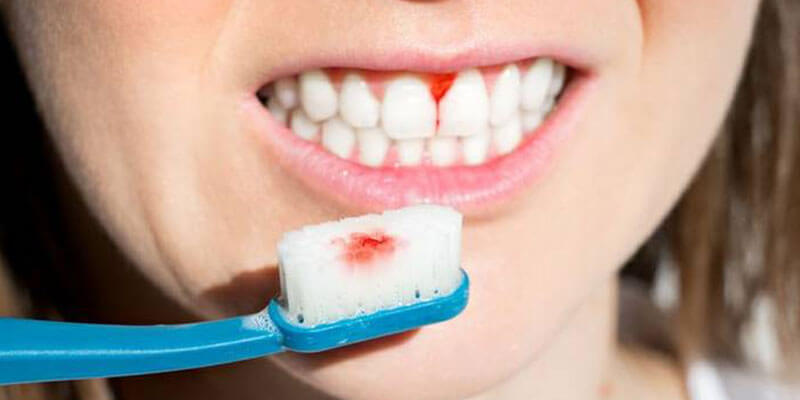Paria (Pyorrhea) in teeth | Know About Case and Treatment
Paria (Pyorrhea) is a severe condition of periodontal disease in which the ligaments and bones that support the teeth become inflamed and infected. It is the result of advanced gingivitis. Gingivitis is a mild form of gum disease that causes redness and swelling of the gingiva, the part of the gum around the base of the patient’s teeth.
After the inflammation, the gum is gradually drawn back from the tooth cervix, followed by tooth loss. Paria is a dangerous disease because it does not produce any noticeable symptoms for a long time.

Gingivitis, that can lead to Paria
Gingivitis is the inflammation of the gum tissue around the teeth. It is often painless. The main signs of the disease are red, swollen and bleeding gums, bad taste and unpleasant breath. Bad mouth hygiene, bad brushing techniques (accumulation of plaque) and smoking are playing a major role in its development. In some cases, hormonal changes, certain types of diseases (leukemia, diabetes), medications, and genetic predisposition are also associated with the development of gingivitis. Untreated inflammation can cause periodontitis, which is a more severe inflammation. At the final stage of the disease, Paria occurs which can lead to tooth loss.
Types of Paria
These are some of the most common types of Paria:
Chronic Paria
This is the most common type of Paria. It is caused by gradual plaque buildup, which then causes gum recession and bone deterioration. This can get worse or improve based on how soon it has been treated. This type of Paria is known to mostly affect adults, but in no way does it mean that children are immune to it. Children too can be prone to Chronic Pariaif dental hygiene is neglected.
Aggressive Paria
It is a hereditary type of Paria. And since it’s hereditary, you would need your family to get checked for Paria too if you have been suffering from it. The reason it is called Aggressive Paria is, if it is left untreated, this destructive Paria type will cause rapid progression of bone loss, eventually causing tooth loss or a fracture.
Necrotizing Paria
This is the worst type of Paria that involves the death of supporting bone, gum tissue and tooth ligaments caused by lack of blood supply, which eventually results in severe infection. Necrotizing Paria mostly affects people who have a weak immune system, which may be due to HIV infection or cancer treatment. Malnutrition and poor food habits can also be a cause.
What are the signs and symptoms of Paria ?
As Paria progresses from gingivitis, it starts showing major signs and symptoms. A few of the major symptoms are as listed below:
- Swollen or puffy gums
- Bad breath
- Loose teeth or Gums that bleed easily
- Painful chewing
- Pus between the teeth and gums
- Tender and sensitive gums
- Bleeding when flossing or brushing
- Deep pockets form between the gums and the teeth
- Gums that recede, making your teeth look longer than normal
- Bleeding when eating fruits like Apple, Guava, etc.
How can pyorrhea be treated?
Regular scaling and polishing are necessary to remove hard tartar, trapped food, and plaque, which can cause tooth decay and gum disease. The gum may bleed during treatment or may be sensitive for several days after the procedure.
It is very important to learn and apply the proper brushing techniques at least twice a day. Flossing also helps to remove plaque from those areas where a toothbrush doesn’t completely reach.
In more severe cases, further conservative treatment and surgery is required.
In the case of moving teeth, replacement of the missing bone tissue (Guided Tissue Regeneration) and a crown can be the proper solution.
If left untreated, Pyorrhea can cause bone and tissue damage, where you can also lose teeth. Besides the loss of the tooth, the infection could cause other health complications.
Thanks to modern dental technological advancements, Paria can be treated using laser treatment and hence becomes much easier to cure in a less invasive manner, unlike traditional surgical methods which are quite painful and invasive.
Paria Treatment at shanti dentals in Rohini, Delhi
Shanti Dentals is the best dental Clinic in Delhi. where we provide our patients with world-class dental treatments, from teeth whitening to laser dental treatments to curing periodontal disease. For all your dental care needs, reach out to us.







